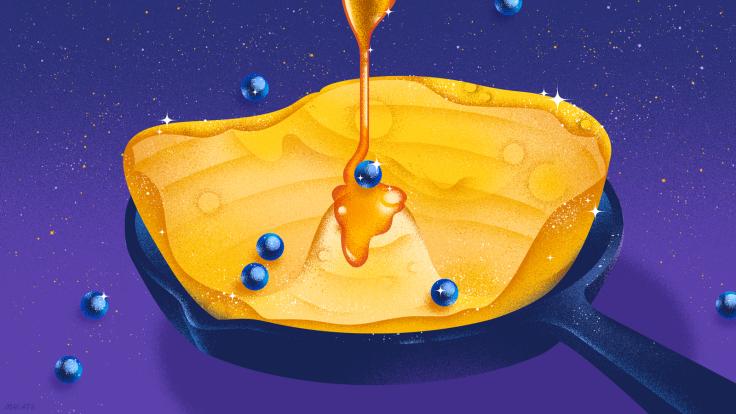US-based scientists and students working on research and experiments with the Large Hadron Collider contribute to a blog that offered articles about particle physics and insight into the life as a physicist. This week, Flip Tanedo, a graduate student at Cornell University, posted an interesting entry on bananas and antimatter:
I was recently preparing a "Physics of Angels & Demons" talk for a group of high school physics teachers who were visiting Cornell for a "Contemporary Physics for Teachers" workshop. While researching natural sources of antimatter, I discovered a curious article about a naturally occurring potassium isotope that, some fraction of the time, decays via positron emission. The conclusion was that:
“The average banana (rich in potassium) produces a positron roughly once every 75 minutes.”
Now any time you find something like this you have to remember that not everything on the Internet is true—not even Wikipedia, but I checked it out (e.g. the LBNL/Lunds table of isotopes) and indeed this seems to be correct!
Potassium-40 is a naturally occurring isotope that is unstable and decays, but it has a huge half life, about a billion years. These days only a small fraction (100 parts per million) of potassium atoms are actually Potassium-40, but objects that are dense in potassium—such as bananas—are likely to have tens of microrams of the stuff. If one crunches the numbers (as they do in the original article), it turns out that bananas pop out a positron every 75 minutes or so.
These positrons quickly annihilate with ambient electrons, perhaps undergoing some other interactions and releasing some photons beforehand. I'm sure the bloggers here who work on LHC calorimetry would have a better description of what happens to it! Advanced readers can read the "Passage of particles through matter" section of the PDG.
Potassium plays a necessary role in our biology, so yes, even you produce positrons every once in a while.
Editor's note: Learn more about radiation in Symmetry's "This radioactive life."






